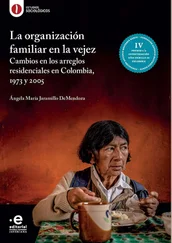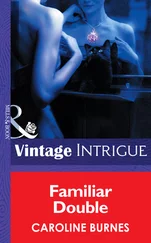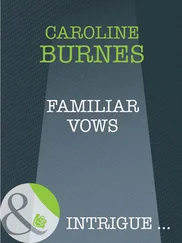In this, anyway, Patricia is mistaken: Elisa turns forty-six in February and feels very much as though her life is mostly over. Derek actually takes her out to dinner. He gives her a handbag as a present. She is fairly certain a woman helped him pick it out — it’s all wrong. She ought to be moved by this, by his sad effort, but she can’t muster the proper emotion. Derek looks older; the planes of his face have shifted. All through dinner she thinks, We’re going to die soon. Nothing is said about either divorcing or reuniting.
For some months Elisa has known that there is an annual conference of the MetaphysicsNet community. It is actually a combined event between MetaphysicsNet and a larger internet forum devoted to science fiction movies and television. There are presentations from cable TV networks, panels devoted to popular shows, and lectures from the more game or nerdy scientists and researchers in various cutting-edge topics — antigravity, rocket propulsion, theoretical physics, and the like. The scientists who actually populate the parallel worlds forum seem to regard the conference as a kind of vacation from their real lives — an opportunity to talk about the things their colleagues find strange or uninteresting.
Patricia tells her to come. You will love it… it could be the beginning of a new life for you… restore your faith in others… the people are wonderful… you will meet lifelong friends and companions… The conference is in July, in North Carolina. She buys a ticket and reserves a hotel room.
In March, Judith invites her to go out of town for the weekend. They drive together to Toronto and they do there the same thing they do in Reevesport — drink too much and talk about men. Or rather Judith talks about men while Elisa laughs. She finds it easier and easier to laugh with Judith, and this should make their time together restorative. But the laughter leaves her with a hangover — it feels fake, it hurts her throat and face, and in the morning, after Judith, she is prone to crying jags. She succumbs to one of these in their hotel room their second morning in the city and Judith climbs into her bed and holds Elisa in her arms. This is a fine gesture; nobody has touched her in months. But it just feels awkward. She stops crying, not because she’s finished, but because she wants Judith to get out of her bed. Later they go to a museum, they go to a show. Then, on Monday, they listen to right-wing radio as they drive back to Reevesport.
In April, Elisa gets a lump at the back of her jaw. She thinks, This is the beginning of the end. The doctor says it’s a swollen lymph gland and tells her it will go away. In May, it goes away.
In June she fucks a librarian who, when it’s over, says to her, “You could have at least pretended to like it.” Also she gets a call from Derek but the ringing stops before she can answer. Maybe he changed his mind. Maybe he dialed her by mistake.
Someone named highdigger appears on the parallel worlds forum. He seems to be a young man, with a young man’s presumptions and confidence. He asks a lot of questions, and his sig line comes from Wilhelm Reich. He says he thinks maybe he’ll go to the conference. When, in the last week of June, he calls somebody an idiot for assuming that a particular movie plot is scientifically plausible— Your naïveté disgusts me —the chill she feels reaches all the way to her toes. She is sure this is Silas. A wave of recrimination appears to drive him into hiding. Elisa sends a private message— Who is this? — that goes unanswered.
In July she takes a week off and drives to North Carolina for the conference.
She’s driving. A Thursday morning in July, hot outside, so the windows of her Honda are down and the highway air is rushing in. It’s the third hour of a daylong trip from the town where she is living, barely, a life without apparent purpose, to the town where she will meet, for the first time, her imaginary friends.
Her name is Elisa Macalaster Brown. It has been a long time since she’s driven alone on a highway for more than a few minutes, and she is surprised to find that she is frightened. Everyone is driving aggressively, coming up close behind her, flashing their brights, swerving into the passing lane and blowing by. Their cars are sleek, the windows closed, the engines making almost no sound. The big rigs, on the other hand, are extravagantly loud. Their trailers bounce and rumble and sway over her, and she hugs the wheel as they pass, terrified of being sucked into the slipstream. She regards this fear as good. It means she doesn’t want to die.
She breaks for lunch at a truck stop outside Harrisburg. She orders a cheeseburger and a strawberry milkshake, but when they arrive she only wants the milkshake. Fat men in plaid shirts turn from the counter every few minutes and look at her. On the way out, she buys a bottle of Visine and a pair of aviator sunglasses. In the rearview mirror she looks like a character in a movie about the apocalypse.
Her satchel is open beside her on the passenger seat. Inside are magazines, books, her computer, and a folder of conference materials, including a schedule, some coupons, and an ID tag attached to a lanyard. The lanyard is printed over and over with the phrase TIME COP Thursdays This Fall on SciFiTV. Of this conference she has no expectations, no hopes. She is simply trusting Patricia. Judith is a bit jealous of this mysterious other friend from the internet — she seems to have been hoping she would be invited along. Not that she would have come if Elisa had asked.
Elisa has a picture in her mind of Patricia: a tiny woman, elfin, with big ears and an innocent, sprightly manner. In her imagination, Patricia wears red Keds, like a child, and speaks very slowly, in an even, breathy monotone.
Somewhere in Maryland, she has to stop and pee, but the rest stop she has chosen is entirely out of order. There are no signs, no caution tape, it’s just abandoned. She does what many before her have apparently done: she follows a rough trail into the woods behind the restrooms and squats among the trees. The sound of the highway has nearly been swallowed up by the vegetation, even though she can still see the cars and trucks passing. Halfway through she thinks she hears a twig break and again is filled with mortal terror. But nobody is there. She again decides to regard her fear as good.
The conference is at the Holiday Inn in Chapel Hill. It is supposed to be a pretty town. But the hotel is just off the highway, and she doesn’t know if there will be time to do anything else. She checks in at the desk and is given a key card, which she uses to let herself into a small room containing a large bed, television, end table, and upholstered chair. It is like every other hotel room in America: too lush. There are too many pillows, too many layers of curtains, patterns everywhere. Immediately she would like to strip everything away so that it is all simple. She does remove the comforter from the bed and stuffs it into the shallow closet, and this allows her to feel slightly calm.
It’s time to venture down to the ballroom, where there will be an opening-night presentation.
Elisa puts on her lanyard (the tag reads CrackedLisa ) and picks up her binder and rides downstairs in the elevator. No music: the elevator is a silent box. She listens to herself breathing. The doors open onto the lobby, where a sign marked METAPHYSICSNET/SCIFITV, with an arrow, stands on an easel. She follows it to the ballroom.
The room is enormous. In the center stand hundreds of folding chairs arranged into neat rows. Around the edge, buffet tables are covered with food. The front of the room is dominated by a low stage. A lectern stands in the center, with a giant screen behind it. There is a hum of loud conversation.
Читать дальше












